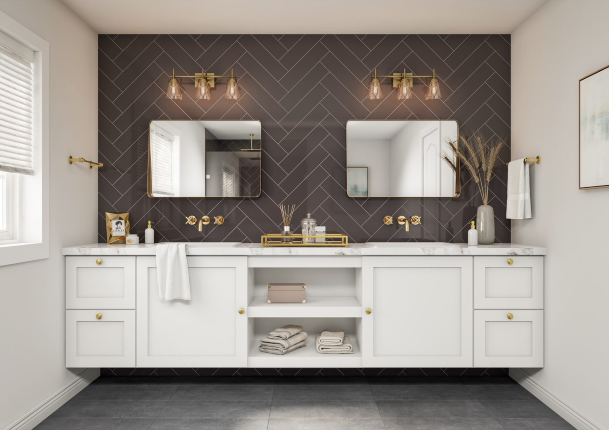 With today’s advances in manufacturing technology, there has been a surge in popularity of rectangular tiles. While attractive, these tiles can present unique challenges to installers when running board patterns are used.
With today’s advances in manufacturing technology, there has been a surge in popularity of rectangular tiles. While attractive, these tiles can present unique challenges to installers when running board patterns are used.
Manufacturers strive to produce perfectly flat tiles, but they often opt to produce tiles that are slightly "domed". This is often minimal but any time the center of one tile is beside the edge of another, there could be "lippage." ln addition, because the length and width are different on rectangular tiles, flat installations can be a challenge when any substrate unevenness occurs especially along the longer edge.
Large rectangular tiles are installed successfully every day when suitable arrangements for a flat substrate have been made and critical design issues such as grout joint width, type of lighting and amount of offset have been properly addressed.
Rectangular tiles ar e regularly used in offset and modular patterns. Such designs are popular and can be achieved with tiles currently incompliance with ANSIA137.1.
e regularly used in offset and modular patterns. Such designs are popular and can be achieved with tiles currently incompliance with ANSIA137.1.
Most rectangular tiles are sufficiently flat to achieve successful, lippage-free installations. Manufacturers are working to make tile warpage specs even more stringent. However, certain precautions should be taken if a 50% off set pattern and/or narrow grout joint is desired. Special attention should also be paid to lighting conditions.
This article was excerpted from "Rectangular Tiles: How to 'Offset' Certain Installation Challenges' by Bill Griese, Standards Development and Green Initiative Manager for the Tile Council of North America. This originally appeared in the January/February issue of The Tile Mag.



